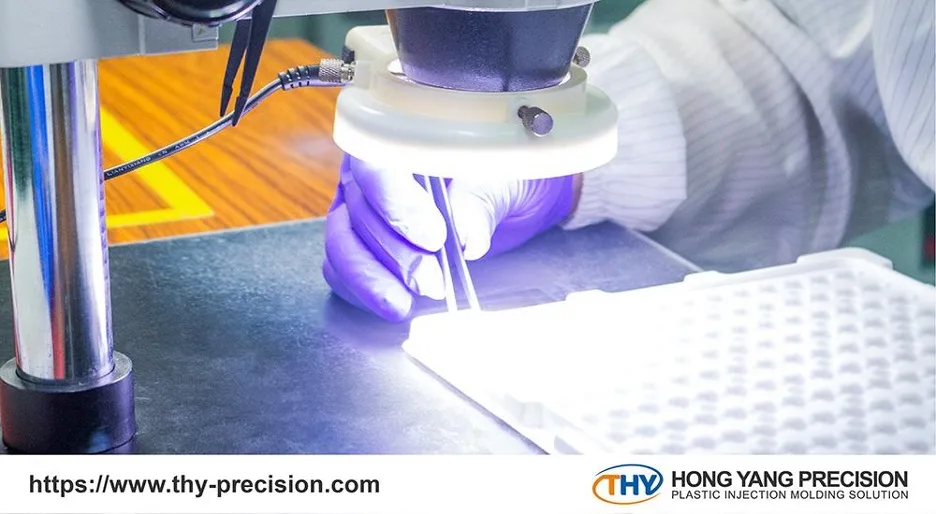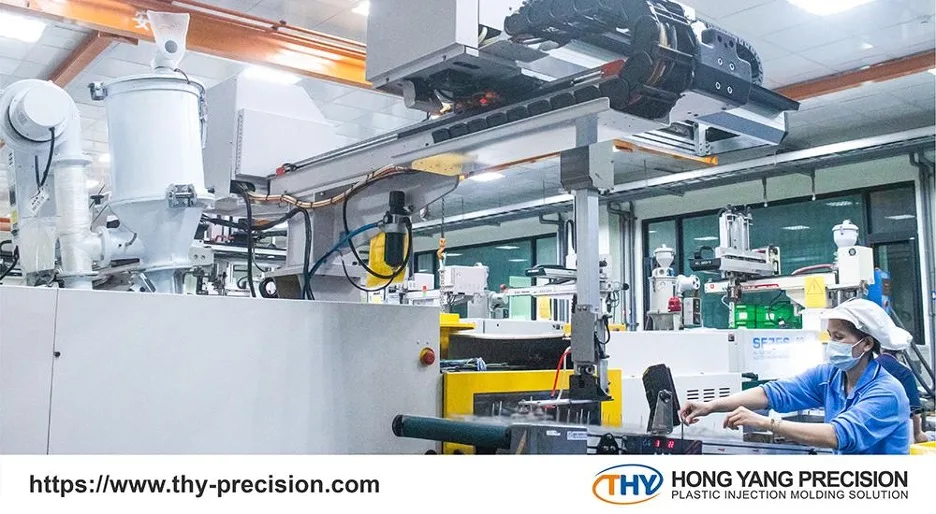Published on 2025-07-18

The medical device industry requires high precision, safety, and compliance levels, making medical device OEM (Original Equipment Manufacturer) partnerships crucial for healthcare companies.
By outsourcing production to specialized OEMs, businesses can ensure high-quality, regulation-compliant devices while focusing on innovation and patient care. Selecting the correct OEM is essential for achieving cost efficiency, speed to market, and consistent quality in medical manufacturing.
Table of Contents
What is a Medical Device OEM?

In the medical device manufacturing sector, OEM (Original Equipment Manufacturer) plays a crucial role in designing, engineering, and producing medical devices later branded and sold by another company.
Unlike contract manufacturers who make devices according to a customer’s design, OEMs often contribute their technical expertise, proprietary technology, and regulatory knowledge to develop innovative medical solutions.
Medical device OEMs are responsible for manufacturing a wide range of products, from leukoreduction filters and cell separation devices to surgical instruments and implantable medical components. These devices are highly regulated and require stringent compliance with industry standards such as ISO 13485 and FDA QSR (Quality System Regulation) to ensure safety, reliability, and effectiveness.
While OEM and ODM (Original Design Manufacturer) are sometimes used interchangeably, they differ in intellectual property ownership, design involvement, and manufacturing flexibility. An OEM typically manufactures a product based on a client’s proprietary design, allowing the client to retain full intellectual property ownership. Meanwhile, ODM manufacturers offer pre-designed products that can be slightly modified and branded by the client, but the core technology and design often remain under the ODM’s control.
This distinction is crucial for businesses looking to maintain exclusivity, regulatory compliance, and product differentiation in the highly competitive medical device industry.
Medical Device OEM: 7 Key Pros
1.Precision and Uniform Results
Medical device manufacturing demands micron-level precision to ensure functional consistency and patient safety. OEMs leverage high-precision injection molding, CNC machining, and robotic automation to produce medical devices with exact tolerances.
2.Cost Efficiency and Value Maximization
Partnering with an OEM allows medical companies to significantly reduce operational costs by eliminating the need for in-house production facilities, workforce training, and compliance infrastructure.
OEMs benefit from economies of scale, allowing them to purchase raw materials at lower prices and optimize manufacturing efficiency. Automated production lines and lean manufacturing techniques reduce costs by reducing material waste and increasing throughput.
3.Reduced Manufacturing Time
Speed to market is crucial in the medical device industry, especially for high-demand consumables like IV sets, surgical masks, and diagnostic test kits. OEMs streamline the production process using pre-validated molds, automated assembly lines, and rapid prototyping technologies.
Their established workflows help medical companies meet tight deadlines while maintaining quality assurance and regulatory compliance.
4.ailored Solutions and Versatility
A reliable medical device OEM can provide customized production solutions tailored to a client’s requirements. Whether developing biocompatible materials for implants or designing ergonomic surgical tools, OEMs offer a high degree of customization.
Many manufacturers also provide co-engineering services, working alongside clients to optimize designs for better performance, cost reduction, and manufacturability.
5.Extensive Material Options
Medical device OEMs can access various FDA-approved, ISO-compliant materials, including biocompatible plastics, medical-grade stainless steel, and advanced polymers. These materials are critical for sterility, durability, and patient safety.
Furthermore, OEMs with expertise in multi-material molding and hybrid material integration can develop devices that combine flexibility, strength, and antimicrobial properties in a single component.
6.Stringent Quality Oversight
Medical device OEMs operate under strict regulatory compliance, following FDA, ISO 13485, and GMP (Good Manufacturing Practice) standards.
7.Expandable Production Capability
As demand fluctuates, OEMs offer scalable production solutions, allowing medical companies to ramp up or down production volumes efficiently. Advanced OEMs invest in modular manufacturing systems, enabling them to scale operations without compromising product quality or lead time. This flexibility benefits medical companies launching new products or expanding into global markets.
Beyond traditional manufacturing advantages, some leading medical device OEMs integrate proprietary material formulations into their production processes. These patented technologies can enhance medical devices’ antibacterial, anticoagulant, and biocompatible properties, making them safer and more effective for clinical use and patient care.
Such material innovations contribute to infection control, improved device longevity, and enhanced performance in sterile environments. With the right OEM partnership, medical companies can focus on innovation and market expansion, ensuring that their products meet the highest industry standards.
Medical Device OEM: Why Outsourcing Benefits Business Operations?

In the global medical device industry, outsourcing to an Original Equipment Manufacturer (OEM) has become a key strategy for enhancing operational efficiency and competitiveness. By partnering with an OEM, medical device companies can transfer manufacturing responsibilities to specialized suppliers, allowing them to focus on core business activities, mitigate risks, and accelerate product time-to-market.
Below, we explore the three key benefits of outsourcing medical device manufacturing to OEMs.
1.Focus on Core Activities
Medical device development is a resource-intensive process involving design, testing, regulatory approvals, and mass production management. Establishing a company’s manufacturing facilities requires significant capital investment and ongoing efforts to maintain compliance and quality standards.
By outsourcing to an OEM, businesses can leverage ISO 13485 and FDA-certified manufacturers to handle production while focusing on technological innovation, product development, brand marketing, and market expansion.
Additionally, outsourcing allows companies to take advantage of OEMs’ advanced technologies and production lines, such as automated assembly, robotic operations, and real-time monitoring systems, ensuring that each stage of the manufacturing process meets the highest quality standards.
2.Risk Mitigation
The medical device industry is highly regulated by authorities such as the FDA (U.S.), MDR (EU), ISO 13485, and GMP (Good Manufacturing Practice). Manufacturers must implement comprehensive compliance management and quality assurance systems to ensure product safety and regulatory adherence.
A company must invest heavily in quality inspection, certification testing, and regulatory compliance management if it chooses in-house manufacturing. However, due to their extensive experience in medical device production, OEM manufacturers already have well-established regulatory compliance and traceability mechanisms that effectively reduce market risks, regulatory penalties, and product recall issues.
Furthermore, OEM manufacturers adopt multi-level quality inspection procedures, such as high-precision optical testing, cleanroom production, and real-time monitoring technologies, ensuring that every batch of medical devices meets clinical usage standards and significantly lowers product risks.
For example, a company developing blood separation devices would face significant costs in building its cleanroom and testing labs. By partnering with an OEM with an ISO 13485-compliant production environment, the company ensures regulatory compliance while minimizing compliance risks and financial burdens.
3.Fast-to-Market Strategy
In the medical device industry, speed-to-market is a critical factor for success. Outsourcing to an OEM enables companies to shorten production cycles and rapidly scale manufacturing, allowing products to reach the market quickly and meet urgent medical demands.
OEM manufacturers have comprehensive supply chain management, advanced mold design, and manufacturing capabilities, efficiently transforming product designs into mass-produced finished goods. This speeds up clinical trials and market deployment, while the OEM’s bulk material procurement capabilities significantly reduce raw material costs, ensuring competitive pricing.
For instance, during the COVID-19 pandemic, the global demand for medical protective equipment (such as ventilators and diagnostic test kits) surged. Many medical device OEMs quickly adapted their production lines, enabling companies to complete product certification and mass production within weeks and ensuring timely market supply—a clear example of how OEM outsourcing provides a competitive advantage.
Key Factors in Selecting a Medical Device OEM

Selecting the right medical device Original Equipment Manufacturer (OEM) is a critical decision that directly affects product quality, regulatory compliance, and overall business success. Below, we outline five key factors to consider when selecting an OEM medical device.
1.Experience and Expertise
A medical device OEM should have a proven track record in precision manufacturing, engineering expertise, and advanced production capabilities. Companies with years of experience designing, prototyping, and mass-producing complex medical devices will offer better reliability and innovation.
OEMs specializing in medical-grade materials and cleanroom manufacturing also provide superior solutions for sensitive medical applications, such as leukoreduction filters, cell separation devices, and implantable medical products.
2.Regulatory Compliance
- The medical industry is one of the most highly regulated sectors, requiring compliance with strict international standards such as:
- ISO 13485 – A globally recognized standard for medical device quality management systems.
- FDA (21 CFR Part 820) – Ensures medical devices meet U.S. regulatory requirements.
- MDR (Medical Device Regulation – EU) – Covers compliance for the European market.
- GMP (Good Manufacturing Practice) – Ensures consistency and quality in production.
A qualified medical OEM should have established certified cleanrooms, full traceability of production processes, and stringent quality control systems. Additionally, its documentation and validation procedures should align with global regulatory expectations.
For example, if a company wants to enter the U.S. or European markets, selecting an OEM with FDA registration and CE certification is essential for regulatory approval.
3.Manufacturing Efficiency
- Efficiency in manufacturing plays a critical role in controlling costs, production speed, and waste reduction. When evaluating an OEM, consider:
- Automation and Robotics: Does the OEM utilize automated assembly lines to enhance precision and consistency?
- Advanced Manufacturing Techniques: Can they offer multi-cavity injection molding, ultrasonic welding, or precision machining for cost-effective production?
- Scalability: Can the OEM handle small-batch prototyping and high-volume mass production without compromising quality?
4.Cost Consideration and Support Services
While cost is a significant factor, selecting the cheapest option can be risky if it leads to quality control issues or regulatory non-compliance. Instead, the OEM’s total value should be evaluated, including transparent pricing models, prototyping and design support, and after-sales services.
5.Traceability in Manufacturing Processes
Medical device manufacturers must have full traceability in their production processes to ensure compliance, quality control, and risk management.
For example, A company producing implantable medical devices should choose an OEM that provides comprehensive traceability solutions to comply with post-market reporting and patient safety requirements.
Finding the Right Medical Device OEM Partner: THY Precision
THY Precision is a trusted medical device OEM with years of experience in precision engineering, clean room manufacturing, and regulatory compliance. Our company specializes in high-precision injection molding, automation, and innovative material solutions for medical-grade devices.
With ISO 13485 certification and state-of-the-art clean room facilities, we ensure stringent quality control and full regulatory compliance. Our expertise in customized production and scalable manufacturing makes us an ideal partner for medical device companies seeking reliability and innovation.
If you are looking for a reliable medical device OEM partner, contact THY Precision today to discuss customized solutions that meet your specifications.
Learn more:
Clean Room Manufacturing: Key to Medical Device Quality
What Are Single-Use Medical Devices and Why do They Matter?
